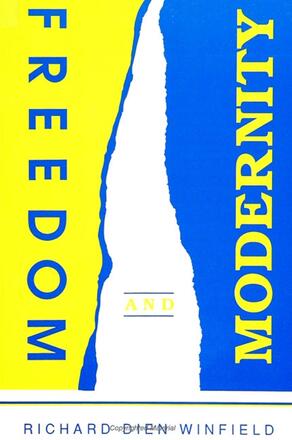
Freedom and Modernity
Alternative formats available from:
Description
This book questions the postmodern credo that the autonomy of reason and action is a delusion, concealing our entrapment in historical convention and masking a logocentric domination. The author shows how this dogma not only assails a false vision of self-determination, but also how it ignores the way in which a critique of rational autonomy can provide no epistemology or ethics, nor any critique of modernity, without embracing the very independence of thought and conduct that it spurns. Freedom and Modernity offers a positive alternative revealing how self-determination is the very substance of legitimacy for both knowledge and conduct.
Richard Dien Winfield is Associate Professor of Philosophy at the University of Georgia. He is the author of Overcoming Foundations; The Just Economy; and Reason and Justice.
Reviews
"Winfield's masterful neo-Hegelian presentation of the problems of freedom and justice and the incoherence of human or 'natural' rights, together with his analysis of the role of modern economic institutions in creating structures for justice and human flourishing, provide a fascinating new alternative to the conventional view of these problems, whether from the standpoint of liberal democratic capitalism or Marxism. Winfield addresses and redresses some of the most compelling criticisms of individuality, freedom, and the commitment to rationality in modernism as advanced by the most sophisticated post-modernist critics, including Derrida and Foucault. " — George R. Lucas, Jr. , Clemson University